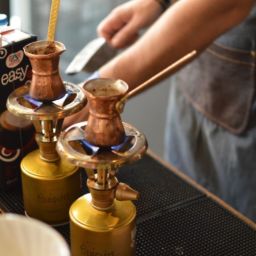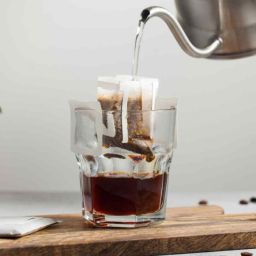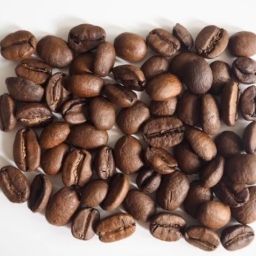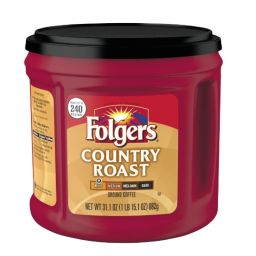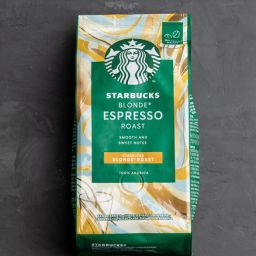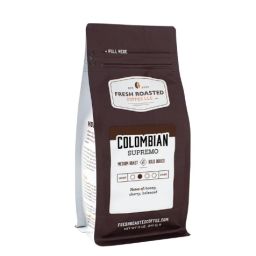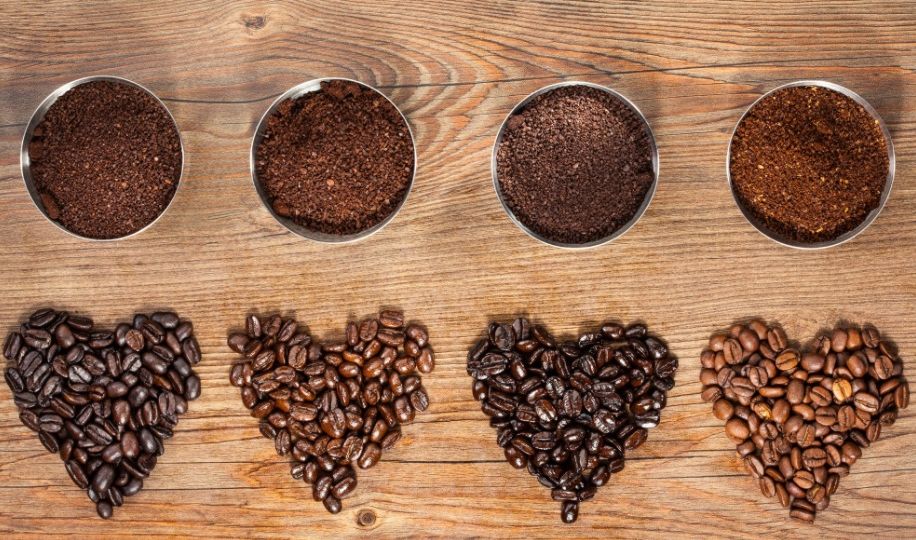
When it comes to the caffeine content in dark roast coffee, there’s a common misconception that needs clearing up: dark roast coffee typically has slightly less caffeine than its lighter counterparts. This might come as a surprise, especially because the robust flavor of dark roasts often gives the impression of a higher caffeine kick. However, the truth lies not in the flavor but in the roasting process itself, which slightly reduces the caffeine content in the beans.
Key Takeaways About Caffeine in Dark Roast Coffee
- Perception vs. Reality: The bold, rich flavor of dark roasts leads many to believe they’re getting more caffeine, but the opposite is true.
- Influencing Factors: The variety of the coffee bean and the method by which it is brewed play significant roles in determining the caffeine content. Arabica beans, commonly used in dark roasts, naturally have less caffeine than Robusta beans.
- Debunking Myths: It’s crucial to differentiate between the taste of coffee and its actual caffeine content, debunking the myth that a stronger flavor means more caffeine.
How Caffeine Content Varies by Coffee Roast
The roasting process plays a pivotal role in determining the caffeine content of your coffee. As coffee beans are roasted longer to achieve a dark roast, they undergo physical and chemical changes that slightly decrease their caffeine concentration compared to lighter roasts. Here’s what you need to know:
Roasting’s Impact: During the roasting process, coffee beans lose moisture and mass. The longer the beans are roasted, the more they expand and lose density, which can affect the caffeine per bean ratio.
Flavor vs. Strength: The deep, intense flavor of dark roast is often mistaken for high caffeine content. However, the strength we taste is primarily due to the roasting level rather than the actual caffeine level.
Factors Influencing Caffeine Levels in Dark Roast Coffee
The caffeine content in your cup of dark roast coffee can be influenced by several factors, each playing its own unique role in the final brew. Here’s a quick dive into the main elements:
The type of coffee bean, Arabica or Robusta, significantly affects caffeine levels. Arabica beans, which are commonly used for dark roasts, generally contain less caffeine than Robusta beans. Robusta beans, on the other hand, pack almost double the caffeine of Arabica, making them a potent choice for those seeking a bigger caffeine punch.
As beans roast, they lose moisture and expand in size. Dark roasted beans are larger due to this expansion but less dense. This means that if you measure your coffee by scoop rather than by weight, you might end up with less caffeine because you’re actually using fewer beans.
Caffeine is remarkably stable during the roasting process. Despite the high temperatures, the chemical structure of caffeine does not break down significantly. This stability means that the change in caffeine content between different roast levels is more about bean density and less about actual caffeine loss.
Comparing Caffeine in Different Coffee Brewing Methods
The way you brew your dark roast coffee also has a significant impact on its caffeine content. Let’s compare a few popular methods:
- Espresso: Typically made with a small amount of water forced through finely ground coffee, espresso is often thought to contain more caffeine due to its bold flavor. However, a single shot of espresso might have less caffeine (about 47 to 75 mg) than a standard drip coffee, simply because the serving size is much smaller.
- Drip Coffee: This method involves brewing coffee by dripping boiling water over ground coffee, which is contained in a filter. Water passes through the coffee, absorbing its compounds, including caffeine. An 8-ounce serving of drip coffee from dark roast beans usually contains between 95 to 200 mg of caffeine, depending on the concentration.
- Cold Brew: Cold brew coffee is made by steeping coarse-ground beans in cold water for an extended period (usually 12 to 24 hours). This method extracts caffeine differently due to the low temperature, generally resulting in a higher caffeine concentration per ounce compared to hot brewing methods. However, because it is typically diluted with water or milk, the overall caffeine content per serving can vary greatly.
How to Measure and Control Caffeine Intake with Dark Roast Coffee
Measuring your dark roast coffee accurately can greatly improve your ability to control caffeine intake. Here’s how you can get it right:
Use a Scale: To ensure you’re consistent with how much caffeine you’re consuming, use a digital scale to measure your coffee grounds before brewing. A scale helps account for the variability in bean size and density, especially important with dark roasts, which can expand more and be less dense than lighter roasts.
Adjust Brewing Variables: If you’re looking to adjust the strength of your caffeine, consider changing your brewing method or the parameters of your current method. For instance, brewing for a shorter period, or using less temperature water can reduce caffeine extraction. Experimenting with these factors can help you find your ideal balance of flavor and caffeine level.
FAQs
Does the type of coffee bean affect the caffeine content in dark roast coffee?
Yes, the type of coffee bean significantly impacts caffeine content. Arabica beans, which are commonly used in dark roast coffee, contain less caffeine compared to Robusta beans. The choice between Arabica and Robusta can influence the overall caffeine level in your coffee.
Are there health benefits associated with consuming caffeine from dark roast coffee?
Caffeine has several health benefits when consumed in moderation, including improved focus, increased alertness, and potentially enhanced athletic performance. It’s important to consume caffeine within recommended limits to avoid negative effects.
How do different brewing methods affect the caffeine content in dark roast coffee?
The brewing method can significantly affect how much caffeine is extracted from dark roast coffee. Espresso, for example, often has a higher concentration of caffeine per ounce, but because it is typically served in smaller amounts, a full cup of drip coffee might contain more caffeine overall.
Is there a myth about caffeine content in dark roast coffee based on its flavor?
Yes, there is a common myth that dark roast coffee contains more caffeine because it has a stronger flavor. However, the truth is that the roasting process reduces caffeine content slightly, so dark roasts may actually have less caffeine than lighter roasts, despite their robust flavor.
How can I control my caffeine intake when drinking dark roast coffee?
To control caffeine intake effectively, consider measuring your coffee using a scale for precision and adjusting brewing variables such as water temperature and brewing time. This allows for a consistent caffeine level that suits your personal preference and needs.
Final Thoughts
Despite popular belief, dark roast coffee generally contains slightly less caffeine than lighter roasts. This is due to the longer roasting process, which slightly reduces the caffeine content in the beans. So, if you’re choosing dark roast for a caffeine boost, you might want to reconsider your options.
The type of bean (Arabica vs. Robusta) and the brewing method you choose have a more substantial impact on caffeine content than the roast level. Arabica beans, commonly used in dark roasts, typically have less caffeine than Robusta beans, and methods like espresso can concentrate caffeine, albeit in smaller servings.
The robust, intense flavor of dark roast coffee often leads to the misconception that it has more caffeine. In reality, flavor and caffeine content are influenced by different factors; the roast level impacts flavor while bean type and brewing specifics determine caffeine levels.


